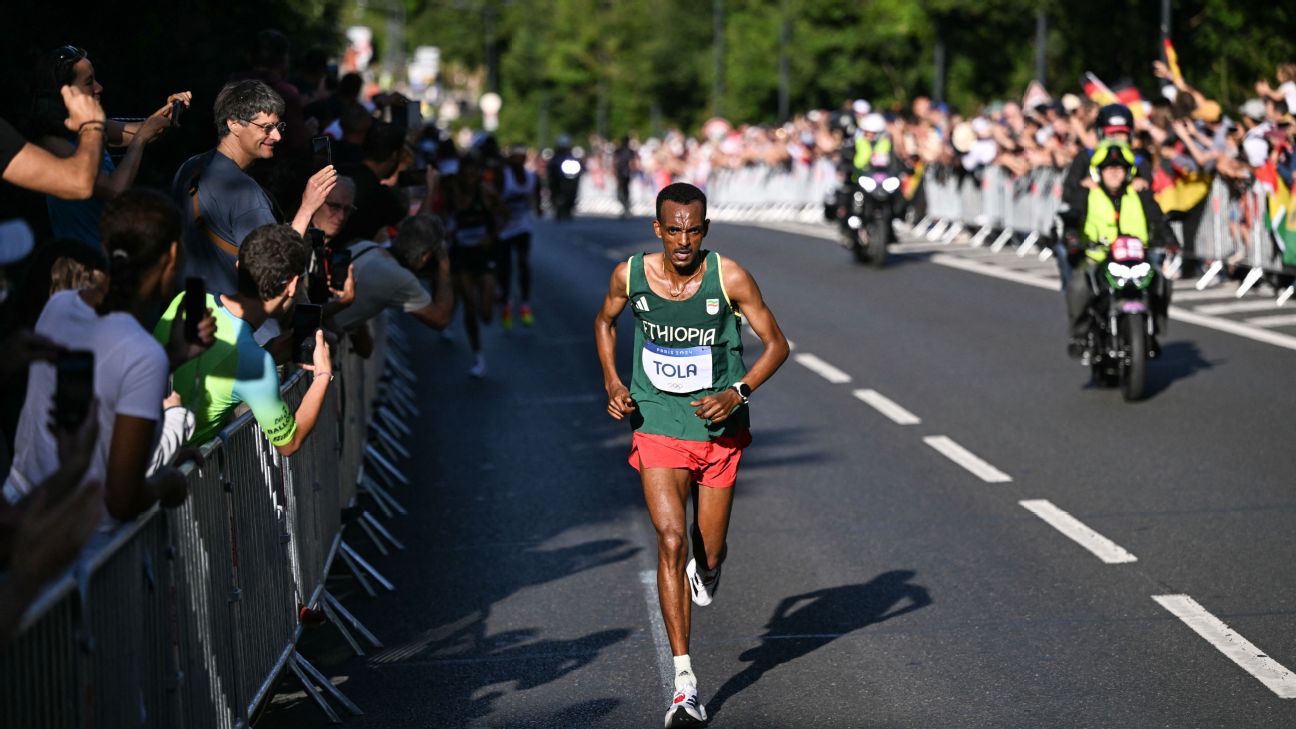 Getty Images/Ringer illustration
Getty Images/Ringer illustrationGetting to the gold medal game was difficult for the Americans. The gap between the USA and the rest of the world is only getting narrower.
Before Team USA’s thrilling Olympic semifinal comeback against Serbia, the Americans’ victories were defined by a sense of anticlimax. The sides—the highlight reels, the LeBron-Curry two-man game, the mentor-mentee warmth of Anthony Edwards and Kevin Durant—were delicious, but there were no stakes. The existential crisis that drove the assemblage of American Avengers—national pride awakened by status anxiety after their loss in the 2023 FIBA World Cup—stood in apathetic contrast to their opponents with budding basketball programs that were experiencing the giddy highs of novel, incremental growth.
On Thursday, the greatest players in the world finally met an opponent that forced them to be more than the sum of their parts. The Americans trailed the Serbian national team, led by Nikola Jokic, by 17 at one point and 13 going into the fourth quarter. It took 36 points from Steph Curry, a triple-double from LeBron James, a Durant dagger, and the most important performance of Joel Embiid’s career for Team USA to survive. Regardless of what happens against France, whom they’ll face in the gold medal game, the fourth-quarter nail-biter validated Team USA’s anxieties about the closing gap between America and the rest of the world.
“We needed everything because Serbia played, I thought, the perfect game,” said Steve Kerr.
After hitting his fourth triple less than four minutes into the game and making for 14 of Team USA’s first 15 points, Curry sprinted down the court shaking his head, as though to say, “Finally.” We’ve seen this from him before, especially as he gets older. When Curry’s shot isn’t falling, his aura of fun morphs into frustration. His jaw locks. His forehead veins bulge. The longer he simmers, the bigger the eventual explosion. And after the frustrations of earlier Olympic games, this eruption was a big one (20 points in the first half, nine triples in the game), but for three and a half quarters, the Serbians went shot for shot with him. Team USA needed Curry to find his groove right when he did.
“I think he was searching for that type of game the whole Olympics, and to have it right here, especially when we needed it, it was special to see,” said Durant, his former Warriors teammate. “It was God talking through him tonight.”
When Curry gets open shots, it also tends to be a symptom of a healthy, flowing offense. All but one of his makes on Thursday were assisted. Overall, 25 of Team USA’s 35 field goals came off of assists. The game’s best players were complementary forces, cutting, screening, and moving well off each other; that included Embiid, who melded his post-up-happy, isolation-heavy game into Team USA’s collective context. He set bone-crushing screens to free Curry, nailed his open 3s, defended Jokic well, and, most importantly, made quick decisions with the ball in his hands. When Jokic picked up his fourth foul, Embiid attacked him relentlessly, scoring seven consecutive points to bring the game within two. From there, Durant passed up a transition pull-up 3-pointer to find James, who hit the layup that tied the game with less than four minutes to go. And when Embiid failed to box out in the fourth quarter against Serbia’s two-big lineup, Durant stepped in for him.
Before the game, Durant told reporters that it would come down to “who wants it more.” His pull-up jumper in the final minute may go down as his signature Olympic moment, but the backcourt violation he forced on Bogdan Bogdanovic a few possessions earlier may have been just as important.
“It’s kinda bittersweet,” Durant said. “We are playing in the gold medal game … but we’re not gonna be together once we finish here. It was just a joy being in the locker room with these guys, on the bus just talking with these guys and then hooping on the floor. This is the best team I’ve ever been a part of, and I want us to finish it off with a gold.”
The USA’s final test will come against the host country. Since relegating Rudy Gobert to the second unit, France has thrived in a five-out scheme that prizes penetration on offense and perimeter ball pressure on defense. But Embiid, who hung 70 points on the Spurs in the NBA’s regular season, could force Gobert back into the lineup if Victor Wembanyama struggles against his size and physicality again. The Anthony Davis–Bam Adebayo duo that Kerr brings off the bench could also bring down France’s rebounding average. Still, after what happened against Serbia, there’s no reason for the Americans to take a French team with a budding superstar, home-court advantage, and an exceedingly favorable whistle lightly—now, or ever again.
“You’re not getting a free pass at this point, in 2024,” Kerr said after the win against Serbia.
If there is a silver lining for those of us who’ve been waiting to be entertained, it’s that this is the most lopsided Olympic basketball will likely ever be. This feels like a threshold moment for America’s basketball supremacy. Four years from now, a bigger, stronger Wembanyama could be flanked by 2024’s no. 1 and no. 2 picks, Zaccharie Risacher and Alex Sarr, as well as Tidjane Salaun, Pacome Dadiet, and Nolan Traore, a projected 2025 lottery pick. The Canadians (read: Jamal Murray and Dillon Brooks) have some soul-searching to do, but four years from now, they’ll have Zach Edey and a potential 7-foot-9 solution to their frontcourt woes in Olivier Rioux. Oh, and prime Andrew Nembhard is going to be a problem.
Goliath is still on top, but the Davids have been refining their slingshot aim. Advancing to the gold medal round was hard. From here on out, it always will be.

 5 months ago
15
5 months ago
15


